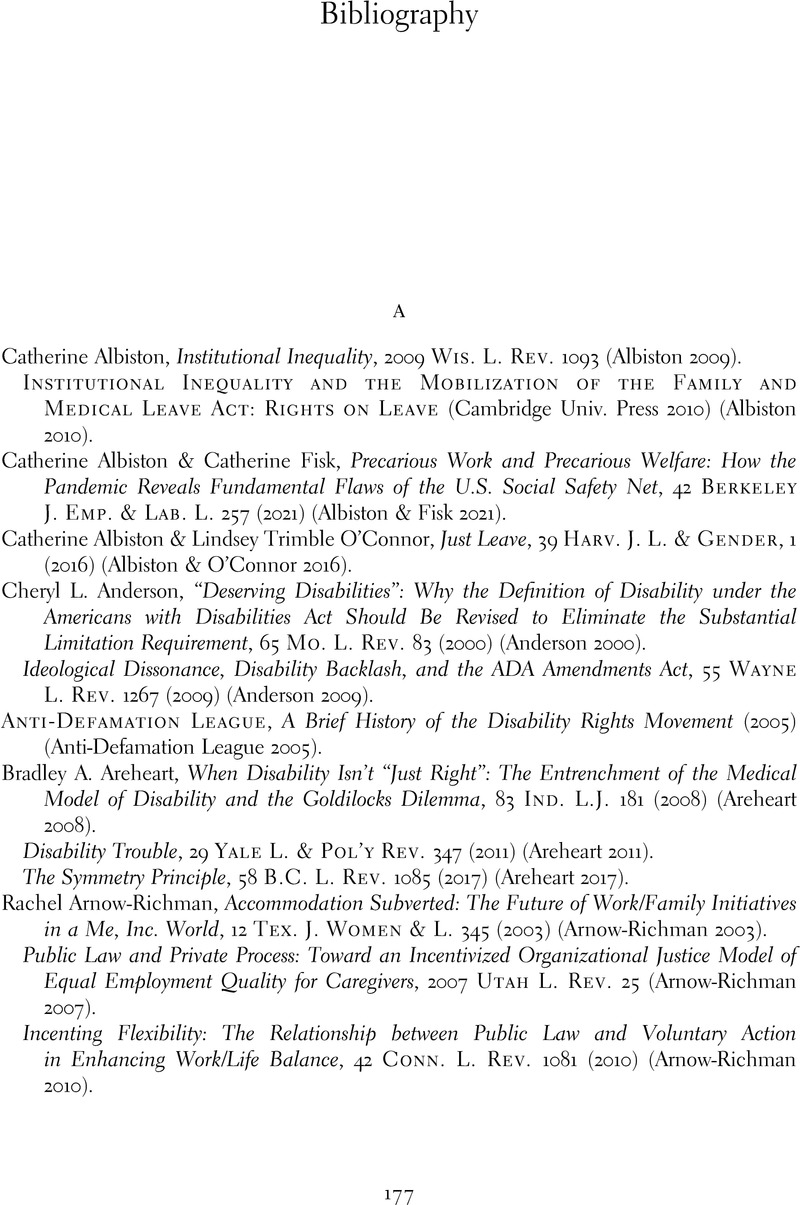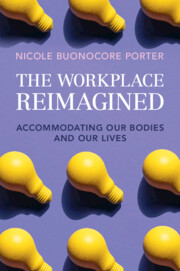Book contents
- The Workplace Reimagined
- The Workplace Reimagined
- Copyright page
- Dedication
- Contents
- Preface
- Acknowledgments
- 1 Introducing a Workplace Reimagined
- 2 The Caregiver Conundrum
- 3 People with Disabilities in the Workplace
- 4 Intersections
- 5 The Entrenchment of Structural Norms
- 6 Special Treatment Stigma
- 7 Theoretical and Practical Justifications for the Reimagined Workplace
- 8 The Workplace Reimagined, Part I
- 9 The Workplace Reimagined, Part II
- Bibliography
- Index
- References
Bibliography
Published online by Cambridge University Press: 11 May 2023
- The Workplace Reimagined
- The Workplace Reimagined
- Copyright page
- Dedication
- Contents
- Preface
- Acknowledgments
- 1 Introducing a Workplace Reimagined
- 2 The Caregiver Conundrum
- 3 People with Disabilities in the Workplace
- 4 Intersections
- 5 The Entrenchment of Structural Norms
- 6 Special Treatment Stigma
- 7 Theoretical and Practical Justifications for the Reimagined Workplace
- 8 The Workplace Reimagined, Part I
- 9 The Workplace Reimagined, Part II
- Bibliography
- Index
- References
Summary

- Type
- Chapter
- Information
- The Workplace ReimaginedAccommodating Our Bodies and Our Lives, pp. 177 - 188Publisher: Cambridge University PressPrint publication year: 2023

